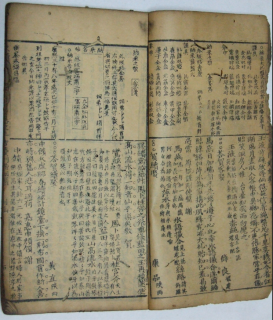Research on the history of Chinese books has observed the increasing utilization of woodblock printing in commercial publishing since the twelfth century. One of the impacts of the extensive dissemination of textual information is the emergence of various book and publication forms to organize information, aiding readers in grasping a wealth of knowledge. My previous research on the thirteenth-century Jujia biyong 居家必用 (Essential knowledge for the household), a pioneering book that categorized and summarized differnt knowledge related to the household, elaborated this foundation for subsequent "household encyclopedias." Through commercial publishing, this carefully selected and organized knowledge was disseminated to a broader readership.
The focus of my current research is on forms of knowledge classification developed by commercial publishing during this period. My study particularly concentrates on knowledge that assists readers in document compilation. Many knowledge classification books compiled various skills related to document compilation, providing templates, aiding readers in creating documents suitable for various social occasions.
Since the fourteenth century, much of the document compilation knowledge was published as multi-volume reference books, smaller handbooks, or as sections of an encyclopedia. This document-related knowledge, akin to medical, technical, and agricultural knowledge, was reorganized through commercial publishing during this period, forming the foundation for the construction and dissemination of knowledge in subsequent eras. Exploring this process will shed a light on the formation of common knowledge, and its influence on different aspects of Chinese history.

